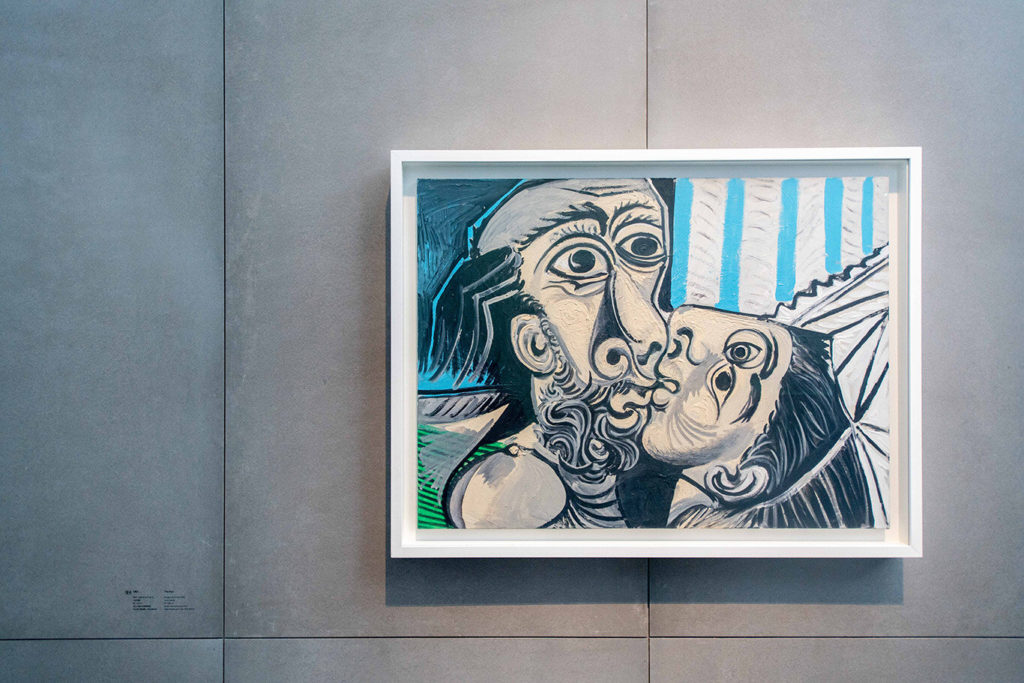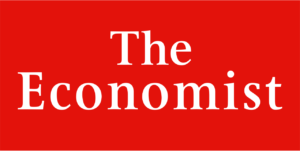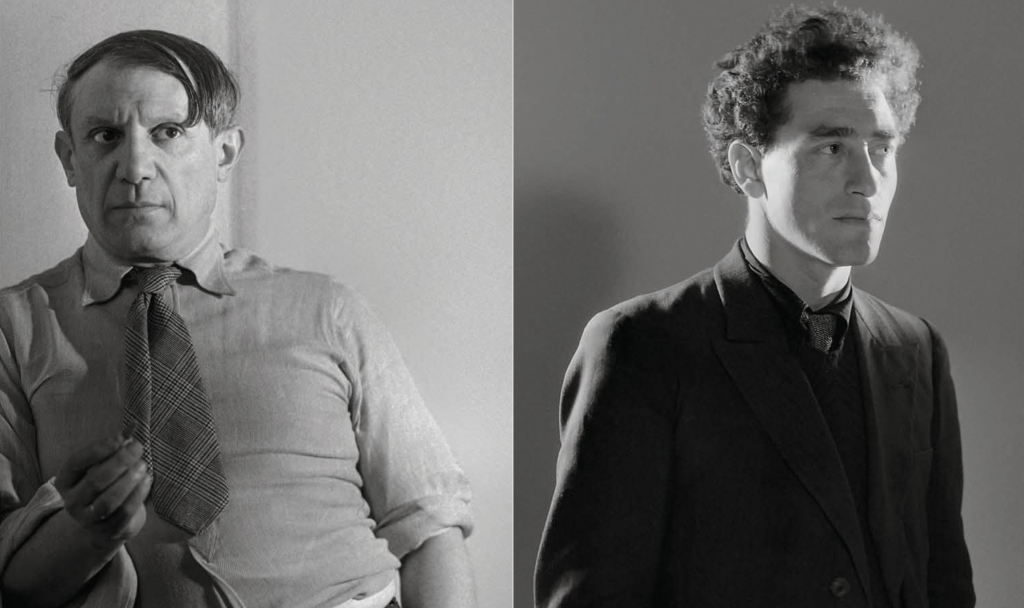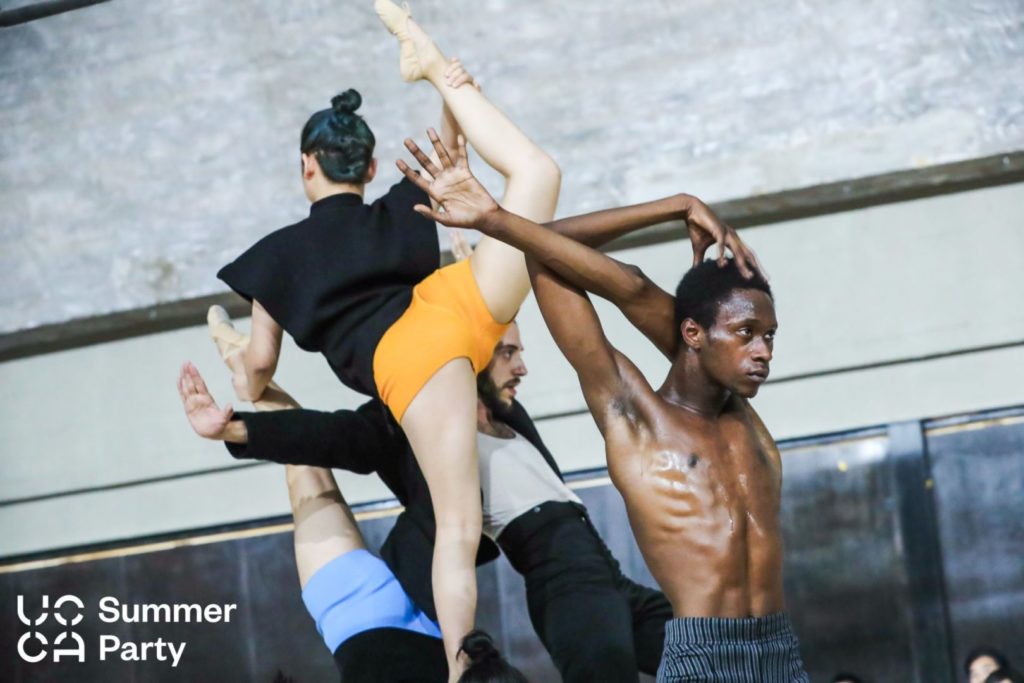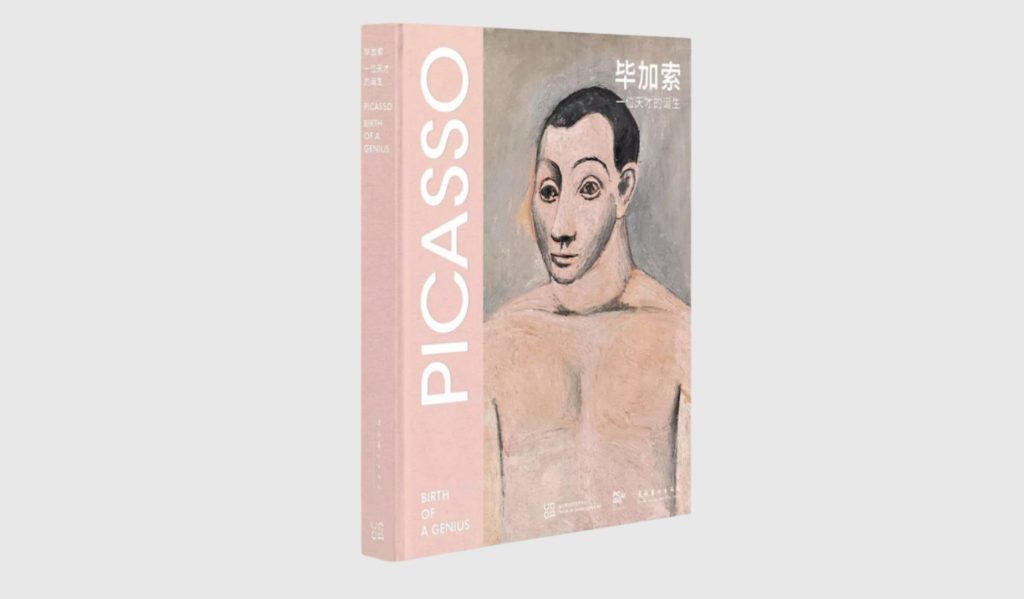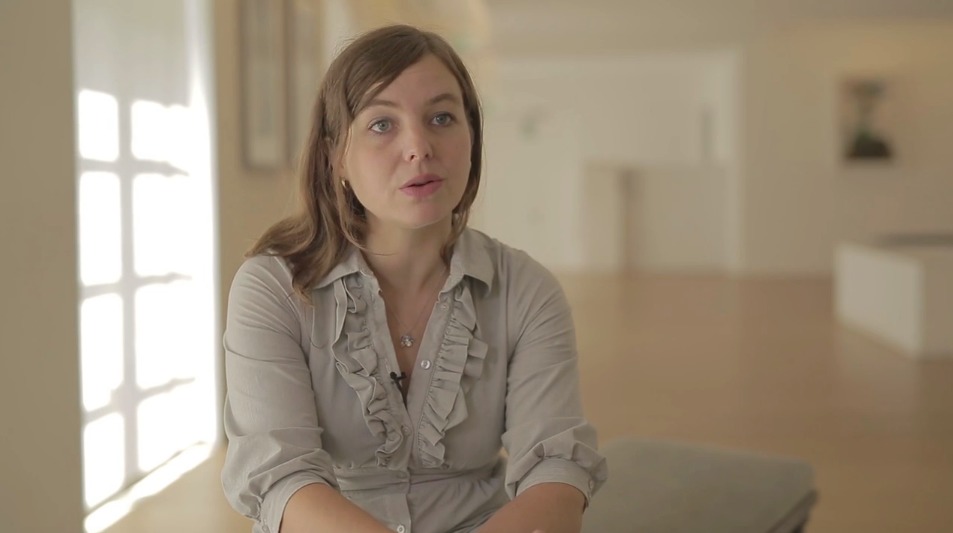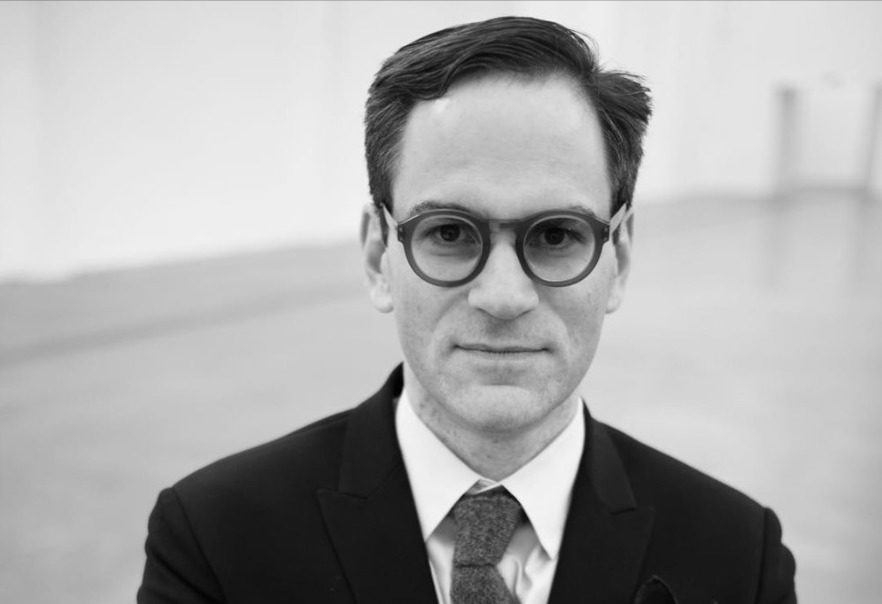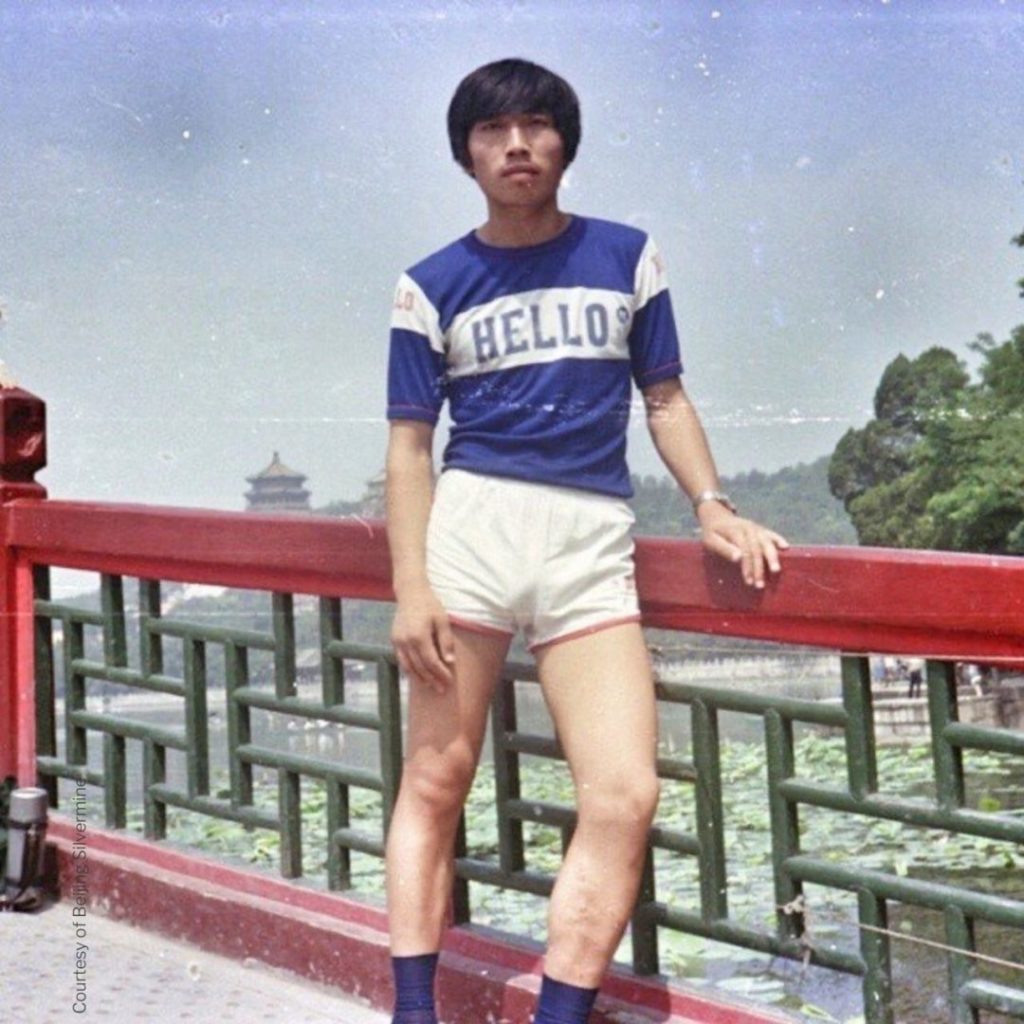Curated by Emilia Philippot, Head of Collections at Musée national Picasso-Paris, the exhibition has been conceived and organized specifically for this presentation at UCCA and in China. It includes 34 paintings, 14 sculptures, and 55 works on paper by Picasso (1881-1973).
Taken together, this selection of works, predominantly realized between 1893 and 1921, tells the story of the creative formation and evolution of the most daring, original, and prolific talent in the history of modern art.
The three decades under consideration were a period of artistic discovery and ferment for the young Picasso, whose style underwent numerous changes: from the academic realism of his student days to his post-war return to classical style; from the alternately somber and carnivalesque motifs of the Blue and Rose periods to the primitivist explorations which ultimately led to the multiple phases of Cubism.
Rather than rigidly separating Picasso’s work into different thematic sections, the exhibition seeks to reaffirm the coexistence of seemingly contradictory languages in his creative process, and to highlight the lived realities behind them.
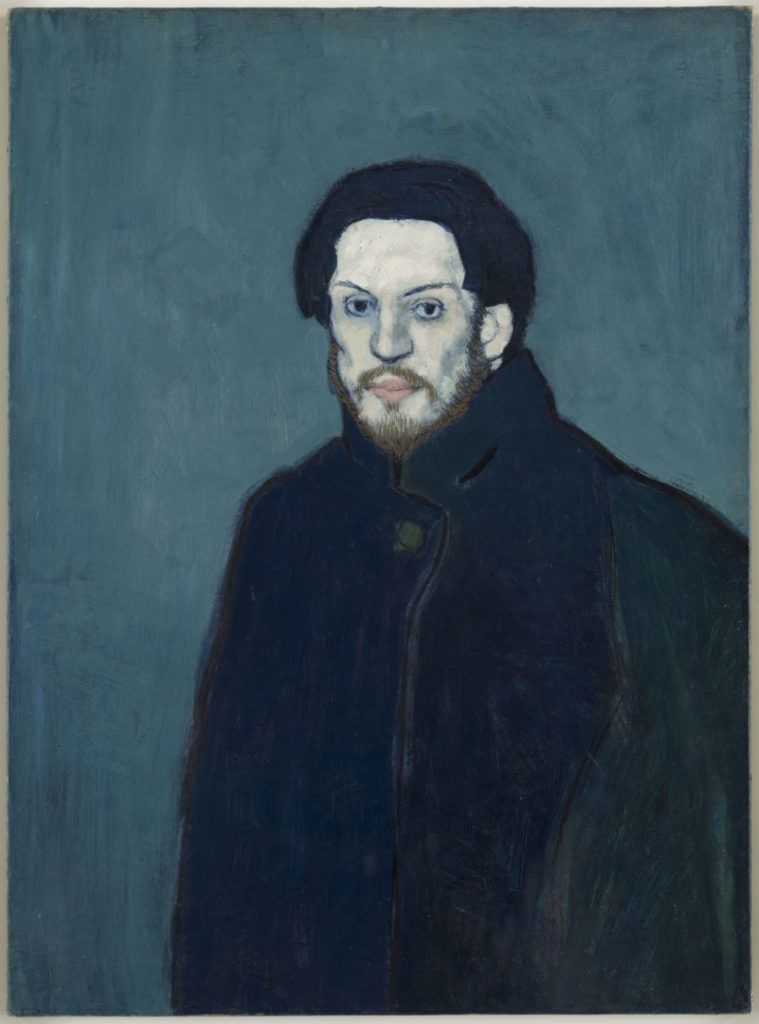
Pablo Picasso, "Self-Portrait", Paris, end of 1901, ©Succession Picasso 2019
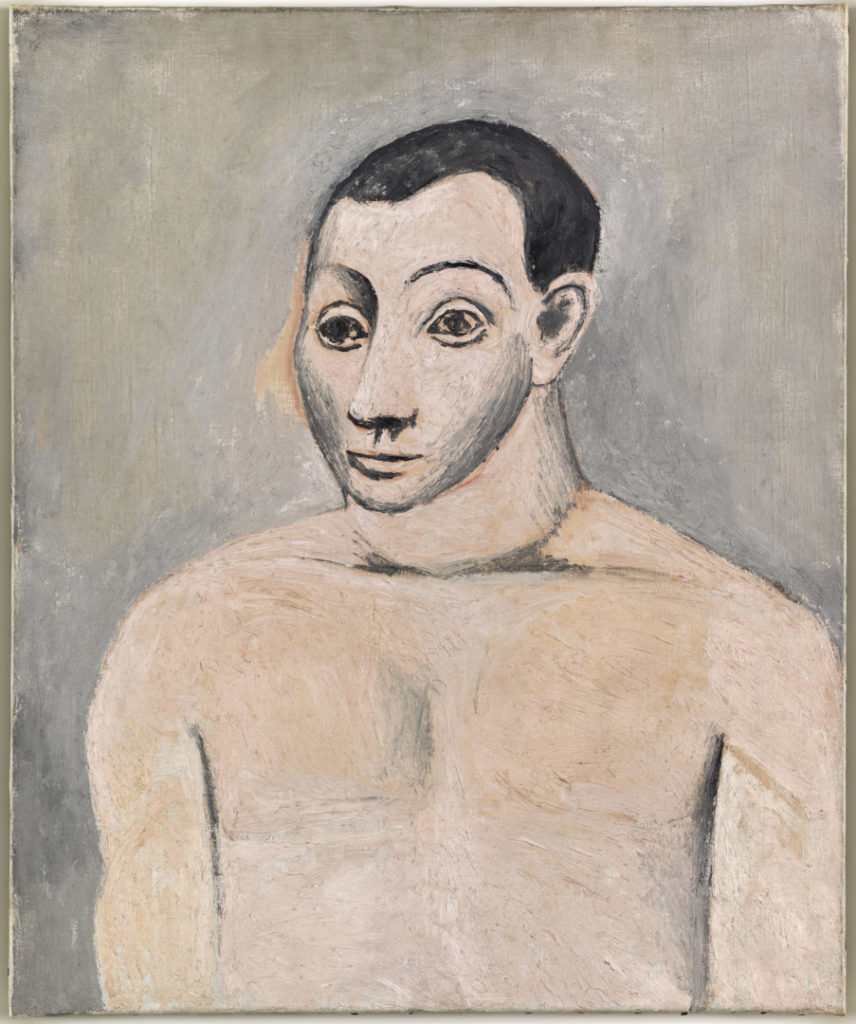
Picasso, “Self-Portrait”, Paris, autumn 1906, ©Succession Picasso 2019
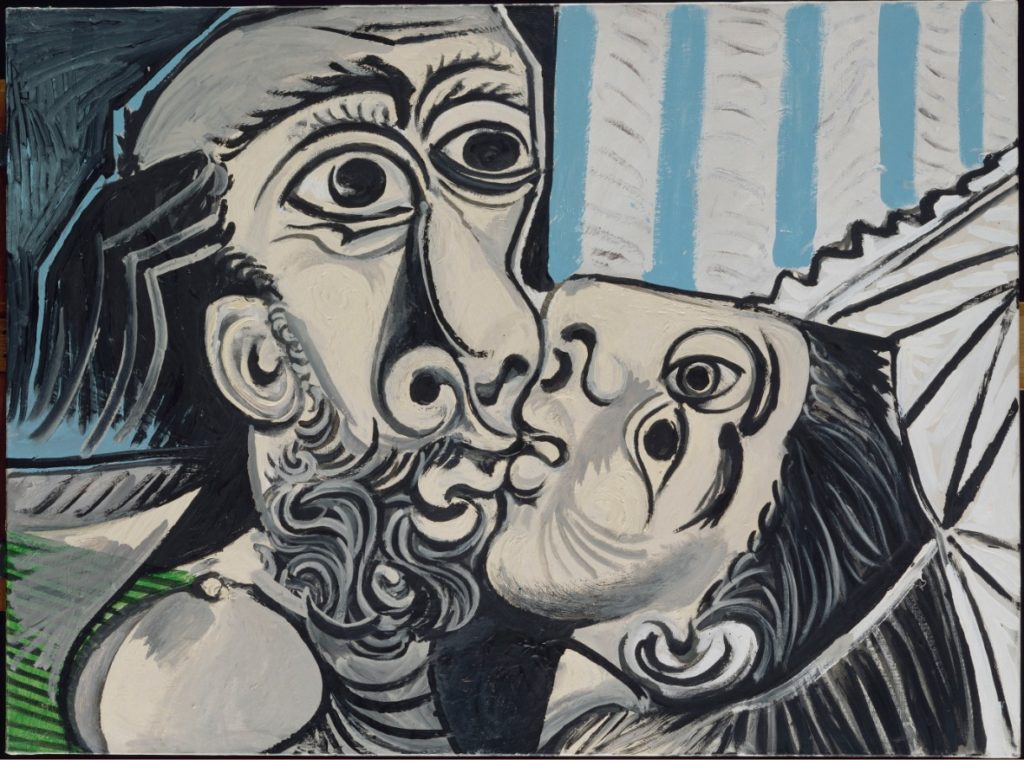
Pablo Picasso, "The Kiss", Mougins, October 26, 1969. Musée national Picasso-Paris. © Succession Picasso 2019

Pablo Picasso, "Self-Portrait", Paris, end of 1901, ©Succession Picasso 2019

Picasso, “Self-Portrait”, Paris, autumn 1906, ©Succession Picasso 2019

Pablo Picasso, "The Kiss", Mougins, October 26, 1969. Musée national Picasso-Paris. © Succession Picasso 2019
The Musée Picasso’s considerable collection —which includes 5,000 art works and more than 200,000 archival objects— was established after two donations made through “acceptance in lieu,” an alternative to inheritance tax, by Picasso’s heirs in 1979, and later by the heirs of his widow, Jacqueline, in 1990. This is the first major endeavor undertaken by the Musée Picasso in China since its institutional revitalization in 2014, under the leadership of then director Laurent Le Bon.
UCCA Center for Contemporary Art is China’s leading contemporary art institution, opened in 2007 and revived by a committed group of Chinese and international patrons in 2017. This exhibition inaugurated a new stage in the development of the museum, regenerated by architecture firm OMA in 2019.
“For UCCA, this exhibition marks the realization of a dream we have held since our opening in 2007, to present not only recent developments in contemporary art but to examine the underpinnings of the contemporary by showing modern masters. We believe that the story of Picasso is relevant to our audience in China, as individuals here continue to answer the challenges of creativity, originality, and innovation,” UCCA Director and CEO Philip Tinari has said.
The exhibition unfolded throughout UCCA’s 1800-square-meter Great Hall, with exhibition design by Studio Adrien Gardère (SAG).
The exhibition attracted 400,000 visitors and generated 2,500 media clippings. It reached 7 million people on Weibo.
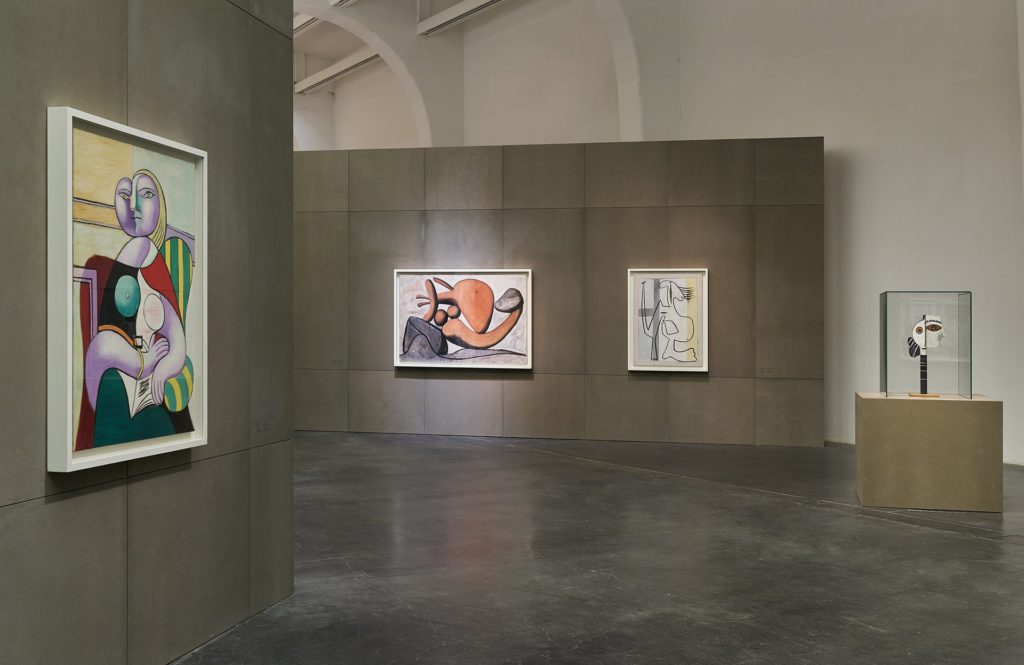
Picasso - Birth of a Genius, UCCA Beijing © UCCA Center for Contemporary Art
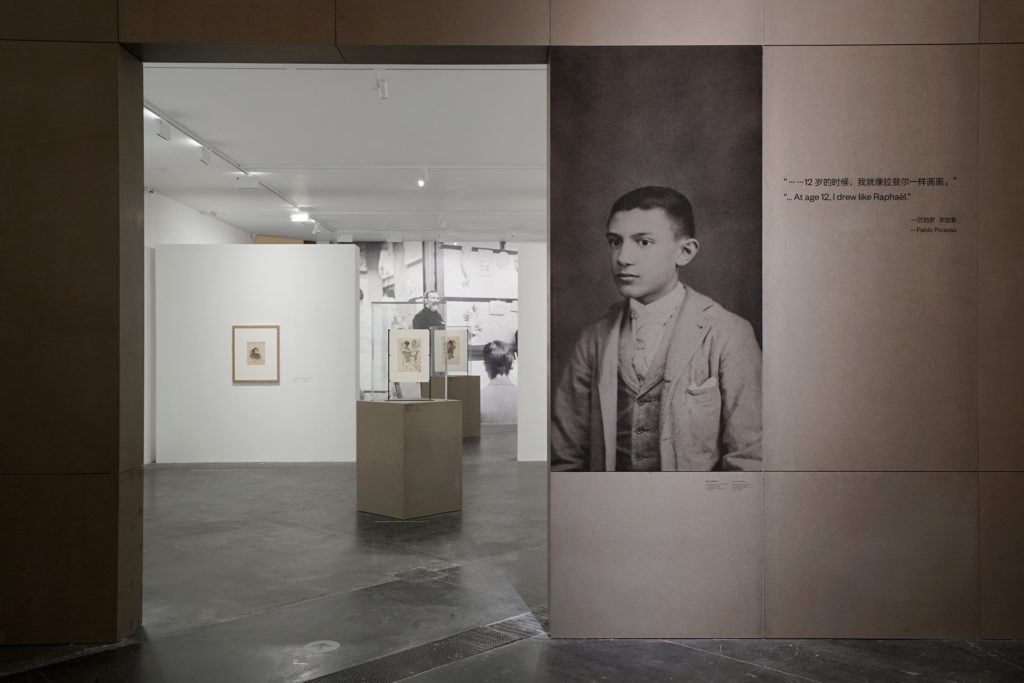
Exhibition view of "Picasso-Birth of a genius" at UCCA Beijing. Courtesy of UCCA Center for Contemporary Art
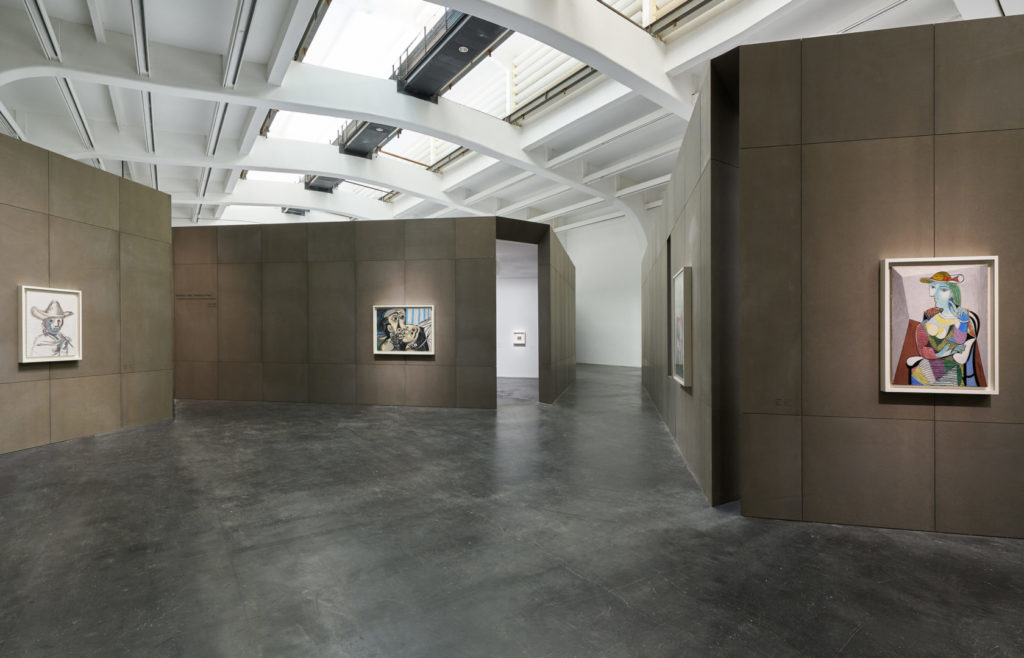
Exhibition view "Picasso-Birth of a Genius" at UCCA Beijing. Courtesy of UCCA
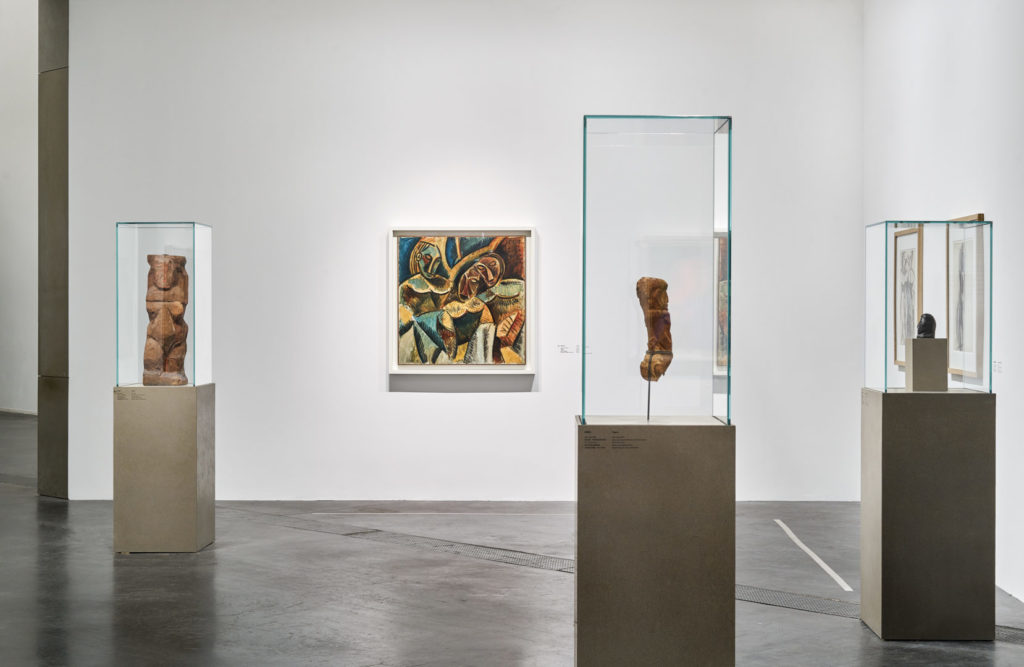
Exhibition view "Picasso-Birth of a Genius" at UCCA Beijing. Courtesy of UCCA
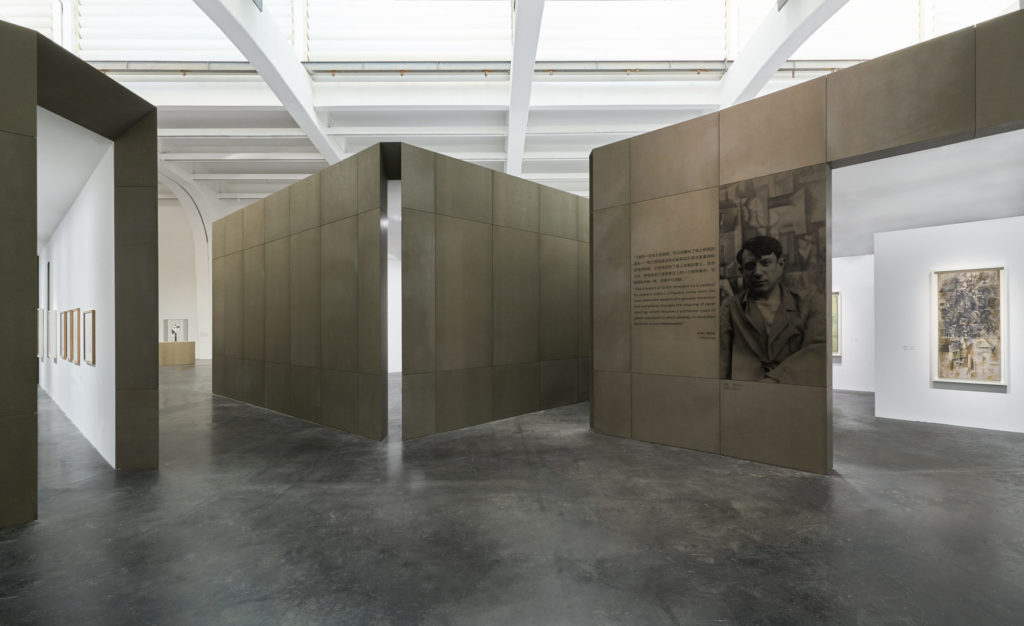
Exhibition view "Picasso-Birth of a Genius" at UCCA Beijing. Courtesy of UCCA

Picasso - Birth of a Genius, UCCA Beijing © UCCA Center for Contemporary Art

Exhibition view of "Picasso-Birth of a genius" at UCCA Beijing. Courtesy of UCCA Center for Contemporary Art

Exhibition view "Picasso-Birth of a Genius" at UCCA Beijing. Courtesy of UCCA

Exhibition view "Picasso-Birth of a Genius" at UCCA Beijing. Courtesy of UCCA

Exhibition view "Picasso-Birth of a Genius" at UCCA Beijing. Courtesy of UCCA
“Picasso – Birth of a Genius” is organized in six chapters:
- “The First Picasso” accounts for the artist’s artistic upbringing, when he produced works such as Man in a Cap (1895) and Study of a Torso, After a Plaster Cast (1893-1894);
- “Picasso Blue and Rose” during which he advanced from imitating Post-Impressionist masters to develop a truly original style, resulting in works like The Jester (1905) and Two Brothers (1906);
- “Picasso the Exorcist” which saw his revolutionary experiments with form and space, producing artworks like Self-portrait (1906) and preparing his masterpiece, Les Demoiselles d’Avignon (Museum of Modern Art, New York, 1907);
- “Picasso the Cubist” a period when he wrought an elaborate system of signs, producing works such as Man with a Mandolin (1911) and Man with Fireplace (1916);
- “Picasso the Chameleon” which marked the artist’s turn towards classical revivalism, creating works such as The Lovers (1919) and Studies (1920), as well as designing the sets, costumes, and curtain for the Ballets Russes production of Le Tricorne (1919);
- a final section which includes several notable paintings and sculptures done between 1927 and 1972, giving a sense of how Picasso’s creative idiom, developed during the period under consideration in the exhibition, informed his later practice.
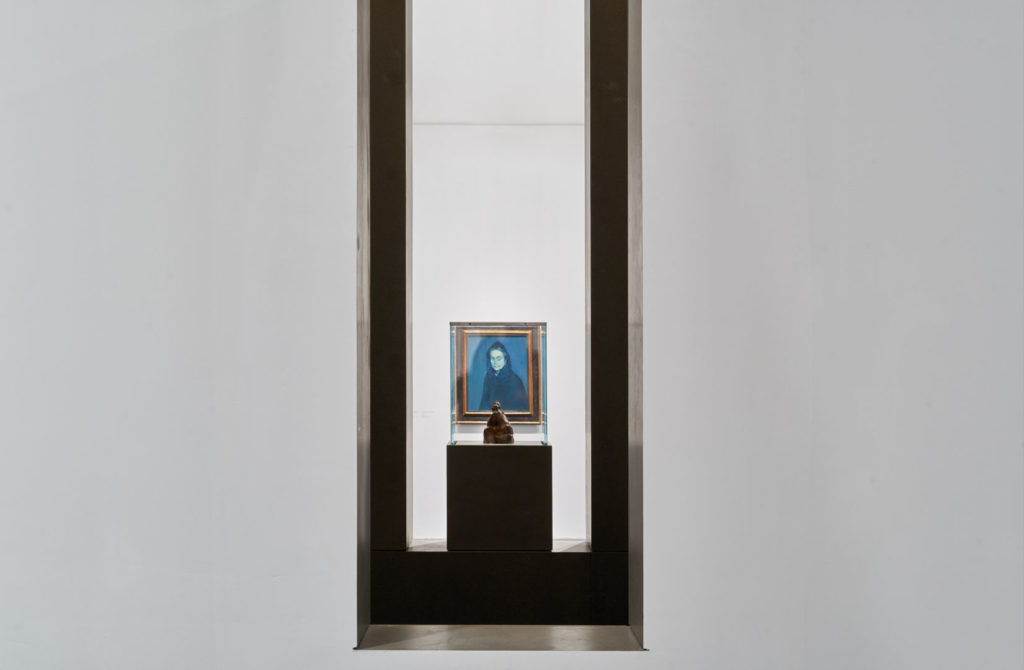
In conjunction with the exhibition, UCCA presented four weekends of public programs including panel discussions along with performing arts and cinema events. More than 600 people participated while 70,000 watched on livestream.
This series, titled “Adventures with Picasso,” sought to introduce audiences to the life and work of the artist in a variety of different formats:
- Academics introduced Picasso from every angle, including through the “Picasso in China” forum, which analyzed Picasso’s relationship with China through lectures and discussions
- Cinema screenings included classics like The Mystery of Picasso by Clouzot (1955) and innovative programs such as the animation The Adventurers of Modern Art
- Pianist Gao Ping, choreographic duo I Could Never Be A Dancer, and 3C (Creative Composers Collective) presented original works inspired by Picasso’s paintings and his collaborations in the worlds of dance and theater
Throughout the run of the show, UCCA’s philanthropic arm, UCCA Foundation, offered a series of specially designed children’s education programs. Young visitors could participate in a guided tour and an art workshop after purchasing a special commemorative packet of art supplies; all proceeds were used to support UCCA Foundation’s projects bringing access to art and education to underserved populations around China. Taking inspiration from Picasso’s creative development, UCCA’s renowned art-education initiative UCCA Kids offered a series of five workshops: “Happy Young Artists”, “The Colors of Emotion: Rose and Blue”, “Ancient Art”, “New Dimensions in Painting”, and “Picasso on Stage”.
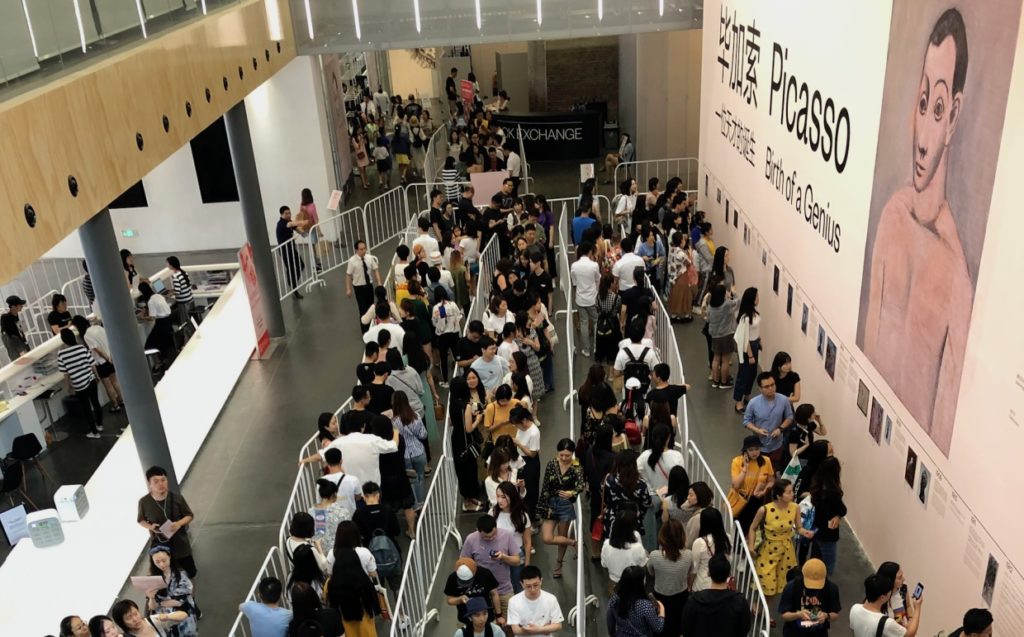
Exhibition view "Picasso-Birth of a Genius" at UCCA Beijing. Courtesy of UCCA
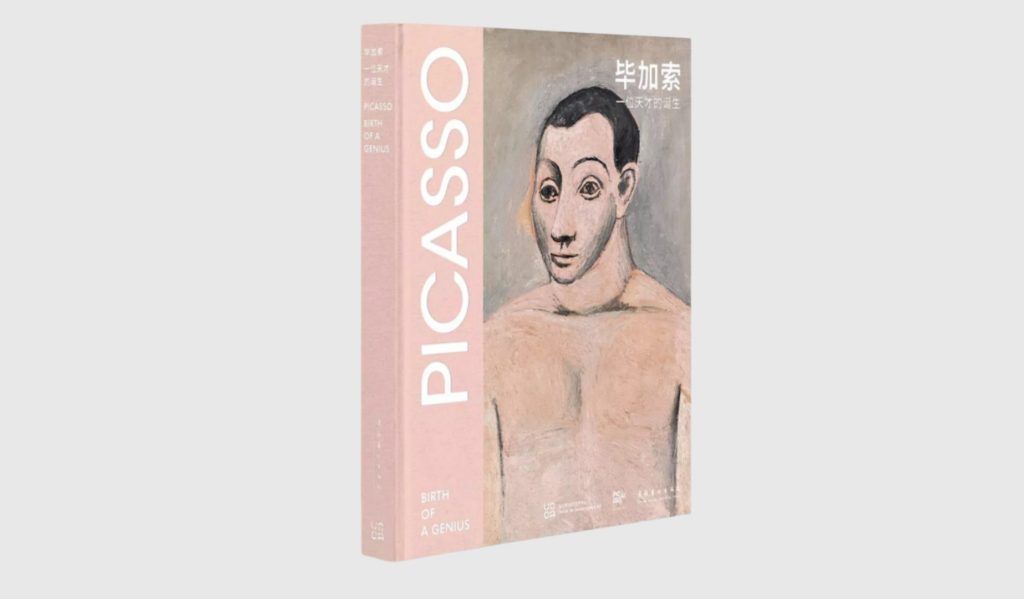
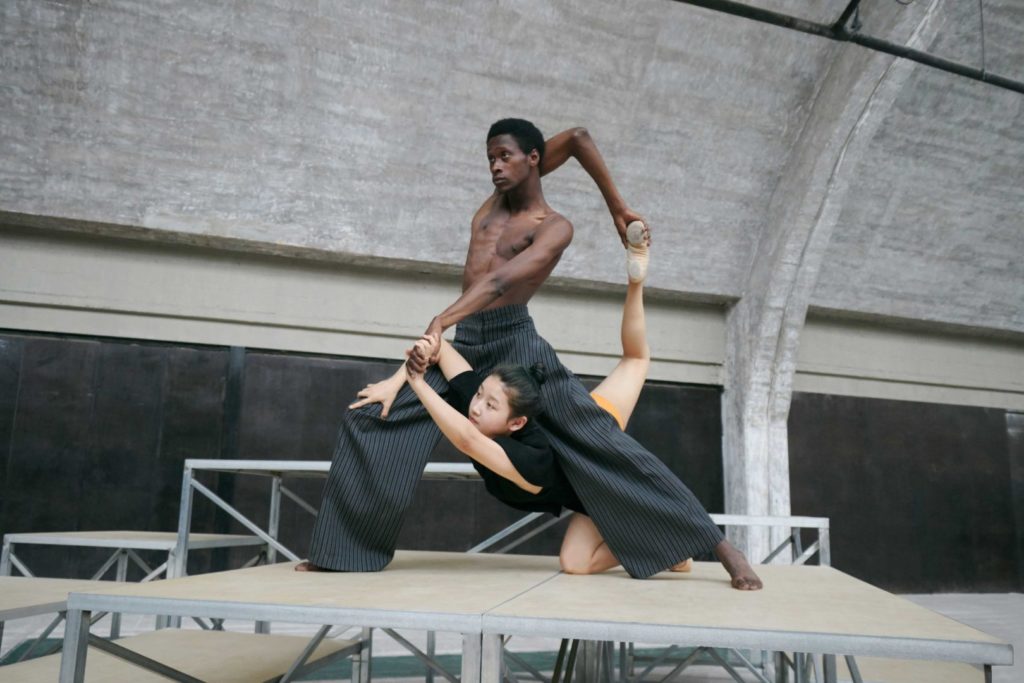
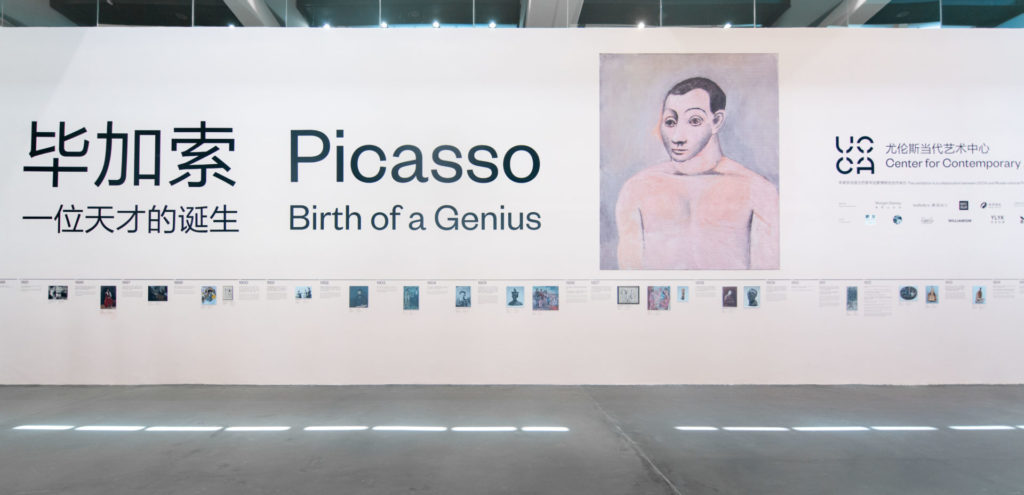
Exhibition view "Picasso-Birth of a Genius" at UCCA Beijing. Courtesy of UCCA
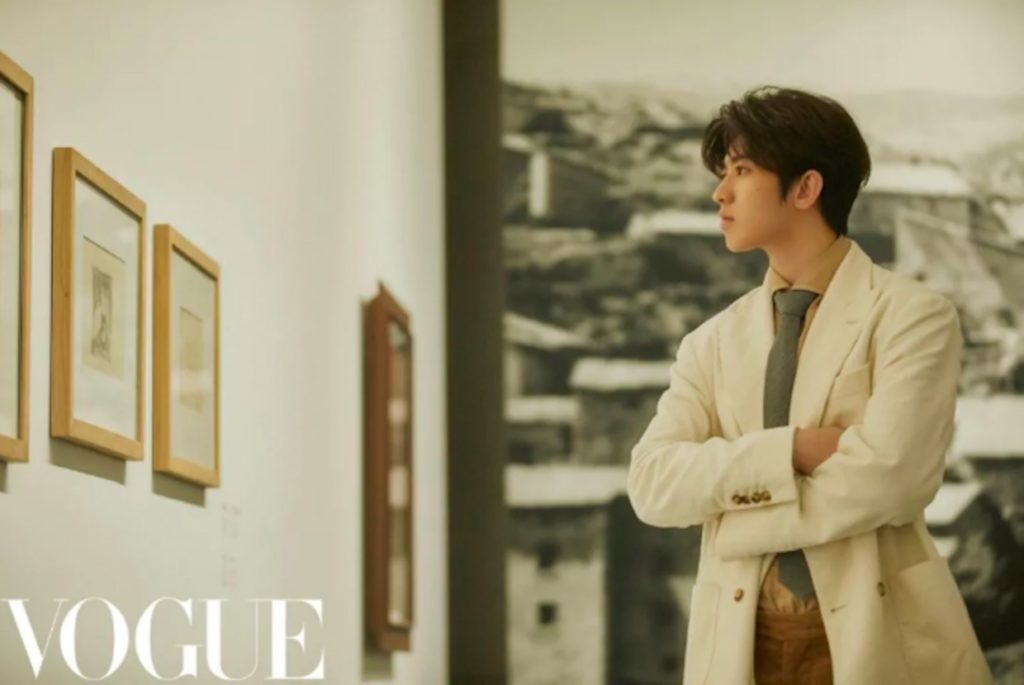
UCCA has chosen Chinese mega idol Cai Xukun as its goodwill ambassador and in addition to recording the exhibition's audioguide, the Chinese popstar has fulfilled a number of philanthropic duties. Courtesy of Vogue China/WeChat

Exhibition view "Picasso-Birth of a Genius" at UCCA Beijing. Courtesy of UCCA



Exhibition view "Picasso-Birth of a Genius" at UCCA Beijing. Courtesy of UCCA

UCCA has chosen Chinese mega idol Cai Xukun as its goodwill ambassador and in addition to recording the exhibition's audioguide, the Chinese popstar has fulfilled a number of philanthropic duties. Courtesy of Vogue China/WeChat
Partners, Sponsorship and Support
As an important part of Festival Croisements 2019, “Picasso – Birth of a Genius” was made possible through the support of the French Embassy in China.
The exhibition received generous sponsorship from Morgan Stanley, Sotheby’s Artistic partner Marie Dalgar, and ShedeSpirits Co., Ltd.
UCCA thanks collaborators TMALL Culture, the China Women’s Development Foundation “Mom Handmade” charity program, WILLIAMISM, and YLYK for their support.
Children’s educational programs for this exhibition were made possible by Asia Ying’s Baby World Limited and YeeHoO Children Growth Foundation, with further generous support from TMALL. BenQ provided film projection support. HongriLighting provided exclusive lighting equipment support.
Focus Media provided national advertising support. Accommodation and event support came from NUO Hotel Beijing. Transportation support came from D-Lux Travel. Exclusive support for environmentally friendly wall solutions came from Dulux. UCCA also thanks the members of the UCCA Foundation Council, the UCCA Contemporary Circle, the UCCA Young Associates, and Strategic Partners Bloomberg and Aranya for their support.

